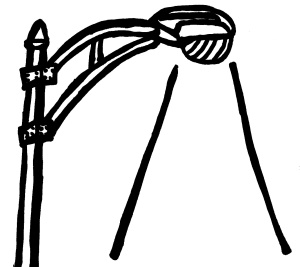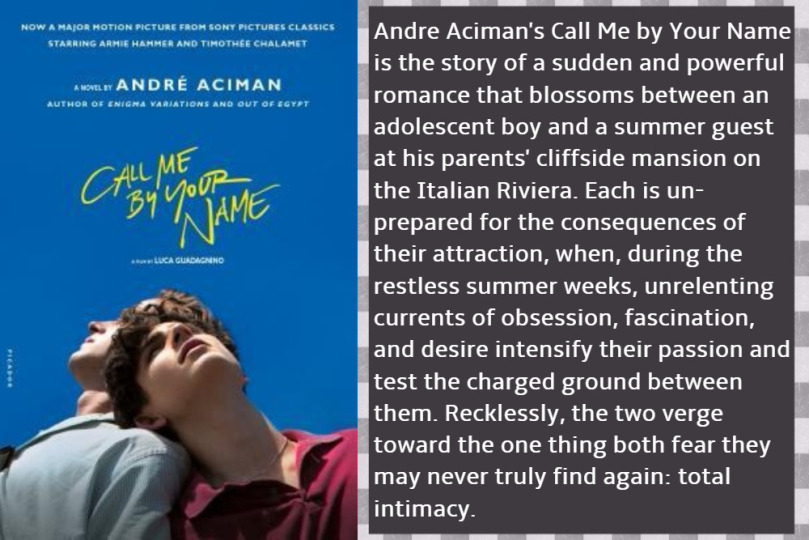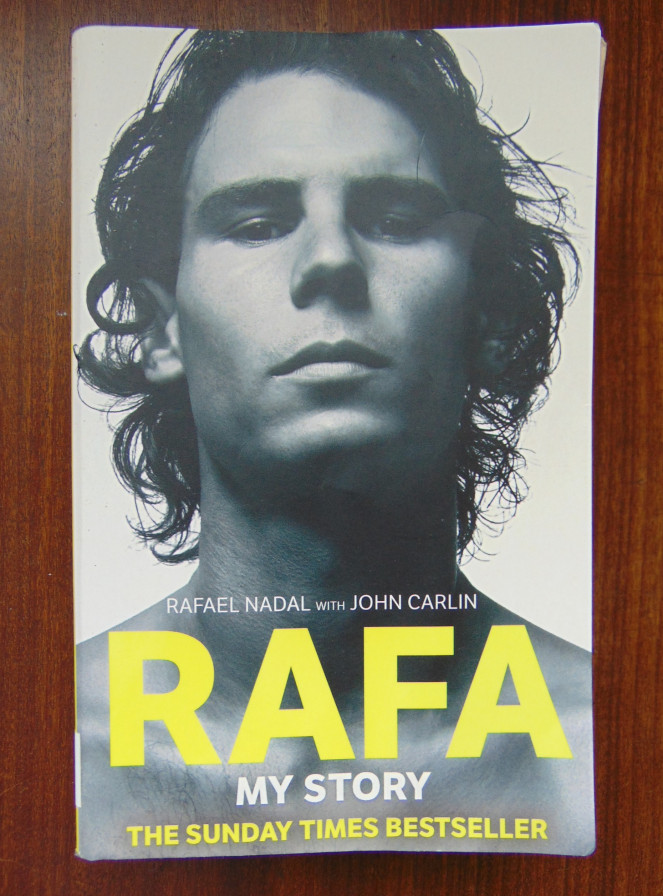
Every month one of us makes the rest of the crew watch a movie they’ve never seen before & we discuss it afterwards. This month Alli made Boomer, Britnee, and Brandon watch Mikey and Nicky (1976).
Alli: Organized crime has a long history in film. The oldest surviving gangster film is from 1906. When most people think about mob movies, they probably think to films packed with explicit violence, or they think Coppola or Scorsese, whose films feature huge ensemble casts and wholly explored backstories and plots. Many of these films intricately lay out the inner workings of crime families, often with socioeconomic criticism about the treatment of immigrants in America. But Mikey and Nicky doesn’t really do any of that. The violence is implied. The cast consists of just 20 people. It’s just a peek into a very specific event and more about betrayal than any political critique. Given that The Godfather came only 4 years before, it’s probably a better approach to break the mold entirely than covering all the same ground again.
Having two characters make a manic dash around New York is still a bold move. There’s so much potential to have it all go wrong, but I can’t think of two people better cast opposite one another. The movie depends on their interactions. Luckily, they’re both masters. Peter Falk has his matter of fact, levelheaded manner and John Cassavetes plays a frenetic jerk. They’re just fun to watch together. Elaine May knew this. Most of the movie was improvised. She captured hours and hours of footage of just Peter Falk and John Cassavetes talking. There was 1.4 million feet of film by the end, which is nearly 3 times as much as Gone with the Wind! The result is a really great movie with an amazingly natural flow, but it took more than two years to edit, which was way over the deadline. After it was reluctantly released, she didn’t work behind the camera for over a decade. Having also had similar problems with A New Leaf, I wonder if her misunderstood genius would have fared better now in the era of digital.
May’s writing is so smart and wonderful. It’s important that dialogue in a movie like this really flows. It’s tense and fast, but also has such moments of tragic humor. Rather than solely focus on the chase and Nicky’s ploys to outsmart pursuers, the relationship between him and Mikey is really developed. I know it’s hard to like or even have empathy for an asshole like Nicky, but in a way, I was still rooting for him. Brandon, did you have sympathy for Nicky?
Brandon: The way we’re introduced to Peter Falk & John Cassavetes’s titular gangsters is unconventional for any movie, let alone a mafia piece, and completely disoriented my sympathies as an audience. The film opens with Nicky strung out & paranoid in a motel room, dying of a stomach ulcer he’s drank himself into. Mikey comes to his rescue, feeding him pills and half & half to alleviate the ulcer, doing his best to calm down what is eventually revealed to be his life long friend by assuring him that, contrary to his paranoia, there is no one out to kill him. Our relationship with Nicky is shaky at that point. Cassavetes plays Nicky with the wild-eyed abandon of a man in the middle of a days-long bender, so it’s easy to keep an emotional distance from the character while aligning sympathies with Mikey instead, a calming presence who sings lullabies, spoon-feeds medicine, and bumbles through life with Falk’s trademark feigning of adorable, cross-eyed befuddlement. Once Nicky’s paranoia of being hunted by the mob is confirmed as legitimate, however, and it’s revealed that Mikey’s helping the mafia arrange his supposed friend’s execution, our sympathies swap and we turn on Mikey for the betrayal.
Sympathy with Nicky doesn’t last long, though. He quickly turns out to be a racist, misogynist asshole who beats women & starts bar fights just to inflate his ego & stave off his boredom. By the third act, when Mikey & Nicky reach their lowpoint fighting over a broken wrist watch in the middle of a city street, I had lost any concern over either of their lives. Over the course of a single night, both characters manage to expose themselves as low-level scumbag criminals without a decent bone in either of their bodies, which is a wild ride considering where the whole mess started. I’ll even admit that Britnee & I were openly, verbally cheering for Nicky’s death by the time their story came to a close.
I’m fascinated by Elaine May’s storytelling process here, especially after hearing Alli say the film was put together in the editing room. The dialogue has such a tight, pointed feel to it, as if the screenplay were written for the stage, so it’s mind-blowing to learn that this was constructed after-the-fact like a sprawling, improv-based Apatow comedy. Besides the storytelling style, I was also struck by how well May captured the dirty, pre-Giuliani era of NYC, the type of New York we’re used to seeing in early Scorsese pictures like Mean Streets & Taxi Driver. The late-night setting, funky blaxploitation soundtrack, guerilla-style handheld camera work, and genuine background characters of real life barroom drunks & creeps all afford the film an authentic, unnerving New York City grime. The only film I can think to compare it to in terms of narrative structure & visual craft is the recent release Tangerine, which gives a whirlwind tour of L.A. sunshine similar to the way Mikey and Nicky tears through NYC streetlights. With those two films being released four decades apart and Scorsese’s most similar contemporary works being praised at the time for being the cutting edge, I think it’s fair to say May was in some ways ahead of her time, even if her basic visual aesthetic resembles a general 70s exploitation cinema aesthetic.
I’m embarrassed to admit that in our third year of organizing these Movie of the Month conversations, Elaine May is the first female director we’ve covered here. With a couple dozen titles from plenty of dudes behind us, that’s more than a little pathetic, but I do appreciate that we got the ball rolling for a corrective with someone who obviously has such a distinct, blunt filmmaking & storytelling style. Britnee, is May’s directorial work something you took particular notice of while watching Mikey and Nicky or did the two dialogue-intensive performances from Falk & Cassavetes fully distract you from what she was doing behind the camera?
Britnee: Mikey and Nicky, which I still accidentally call Mikey and Ikey or Micky and Nicky, is unlike any movie I’ve ever seen. It reminded me more of an intimate play (I got some Rosencrantz and Guidenstern Are Dead vibes), so I’m not surprised to find out that improv played a huge part with our two main characters. As Alli stated earlier, the flow of Mikey and Nicky’s dialogue was so natural. Watching the two characters interact with each other was mesmerizing. At first, I thought that Nicky was hallucinating and Mikey was his lover just playing along with his “episode.” In no way did I expect this film to be a gangster flick. What a surprise! Nicky wasn’t losing his mind, he was just an complete asshole that was scared of being murdered by his mob boss.
Something that really did stick out for me was the film’s directorial style. The hazy, voyeuristic shots of Mikey and Nicky walking the dark streets of New York are so damn beautiful, but it’s the way that May captures the good, bad, and ugly of her two main characters. Mikey’s heavy heart due to betraying his life long friend and Nicky’s abrasive behavior that seems to grow with his fear of being whacked are two major elements that are highlighted by May’s directing. The audience can’t help but feel sympathy for both characters at some point, but ultimately, both are horrible people. Creating that sort of love/hate relationship with characters like Mikey and Nicky seems almost impossible, but with May’s smart directing style, she really gets the job done.
A film focused mainly on the relationship between two male friends over the course of a single night doesn’t initially sound like a recipe for success, but this is one of Mikey and Nicky‘s biggest strengths. There aren’t many distractions, except for the décor in Nellie’s fabulous apartment, so we’re able to focus on what is the most important: Mikey and Nicky’s very confusing friendship. Boomer, did you enjoy the film’s simplicity or did you find it to be boring?
Boomer: I’ve always been a big fan of “small” films, by which I mean movies that focus on the relationship between a minimal group of characters and which play out more like a stage play than big sweeping epics (although I love those too). Part of this could be borne out of my theatre background, but it more likely comes from having watched so many episodes of Alfred Hitchcock Presents in my youth; in those early days of television, newly minted screenwriters seemed to still be stuck in a very “stage” mindset, usually writing scripts for no more than three major characters and confining the action to one set. Serendipitously, just a few nights before watching Mikey and Nicky, my roommate (coincidentally also named Nicky) and I watched a 1961 episode of AHP, “Gratitude,” starring a thirty-four-year-old Peter Falk as a gangster who is terrified of being killed by his rivals for potentially exposing their casino ring to wider police scrutiny. I’ve never really thought of Falk as typecast, but it sure is a fascinating alignment of coincidence that he played the Nicky role therein.
As such, I really did enjoy the intimate focus on these two men and their deteriorating relationship as May traced their dialogue-heavy path across the New York that exists only at night and only in the past. The film is essentially a play in motion, tracking Mikey and Nicky from one set piece to the next but not being predicated on the need for that movement; I could easily see this being adapted for the stage, with most of the discussion and conversation playing out in the relative safety of Nicky’s hotel room. The film draws you into the intimacy of the title characters’ relationship long before the rug is pulled out from beneath you with the revelation of Mikey’s true motivations, and most narratives (especially those on Alfred Hitchcock Presents) would be satisfied to reveal this twist and skip right to the violent ending, but Elaine May lets us continue on with this knowledge as the film tracks towards its sorrowful, if inevitable, conclusion.
Brandon mentioned Tangerine as a companion piece above, but this felt to me more like an inverted Girl Walk//All Day, in the sense that the latter film is a casual, daylit, dialogue-free feel-gooder that expresses itself through fluid and expressive motion and color, the opposite of Mikey and Nicky‘s languid (and stumbling) trek through the dark, in which the plot is driven largely by conversation, reminiscence, and old grudges. Both even have revelatory scenes in graveyards! This flick’s your pick, Alli, and we covered GW//AD before we were fortunate enough to have you join us. If you have seen that film, do you agree that it would serve as a decent counterpoint to M&N? What other films do you think would serve as thematically or narratively companions to this one, if you were to program such an all-night double feature?
Alli: I just watched Girl Walk//All Day, and I think it’s definitely got a lot of similarities, like you said with the graveyard, and it shows a lot of New York, but the New New York. It’s not the hazy grimy 70’s New York. It’s the glowing Times Square, people coming and going New York. If you were to take The Girl, The Gentleman, and The Creep and transport them to 70’s New York, especially the New York of Mikey and Nicky, they’d stick out like a sore thumb and probably get mugged. Another companion piece with a similar tone as GW//AD–I know this isn’t a film, but there’s an episode of Broad City where Abbi looses her phone, and she has to run around New York in search of it. It’s got the chase aspect, but it’s more about friendship than betrayal. It also has the added bonus of two lead actors with amazing chemistry together.
As far as actual movies go, I think Wings of Desire would be a good double feature with this, and not just because Peter Faulk is also in it. It’s something about the wandering through Berlin as these two angels try and figure it all out. West Berlin looks as decaying as New York City in the 70’s. It’s also a movie that was shot with a minimalist script and a lot of improvisation. Of course, Wings of Desire was heavily praised and award-winning, while Mikey and Nicky fell into obscurity.
I know part of why it fell into obscurity was due to legal battles and distribution issues, but it still puzzles me. It’s a beautiful movie. It’s also just as much ahead of its time as it is a time capsule of a dark and gritty era of New York history. On top of all of that, it’s really quotable. One of my favorite lines in all of cinema is, “You make us sound like a couple of cemetery freaks.” I think it should stand out more. And I hate to say that it might be due to having a woman director, especially when I know about all the release problems, but I think it’s definitely a contributing factor. After all, Apocalypse Now suffered similar production problems with a much, much higher budget, and is now regarded one of the best films ever.
Brandon, do you think gender bias had an affect or is this just a case of a small movie not finding its audience? Like you said before, this is the first film by a female director for Movie of the Month. I think that’s pretty representative of the state of gender in filmmaking.
Brandon: That’s a difficult question to answer definitively. Gender bias is an issue that gets its nasty little fingerprints on everything, so it obviously has a huge effect on what films are being made, seen, and properly canonized, just like it effects nearly every other aspect of life. On the one hand, I remain thoroughly embarrassed that I had not been paying attention to highlighting female-directed films through the tiny critical platform we have here in these Movie of the Month discussions. On the other hand, the source of that problem is deeply rooted in the film industry as a system & an institution. According to this piece in the Hollywood Reporter, “Women comprised just 7 percent of all directors working on the top 250 domestic grossing films in 2016.” 7 percent. I can’t imagine the numbers were any better when May was working back in the macho days of the 1970s or any other time in cinema history (2016 actually saw a significant dip from 2015’s barely-better 9 percent; thing’s aren’t consistently “getting better”) and that long-standing under-representation behind the camera is a huge blow to the kinds of voices we get exposed to as an audience.
Hollywood is simply not giving enough women (or anyone who’s not a white dude, more broadly) the opportunity to produce well-funded, well-distributed, well-promoted media, which means that when we’re making selections for conversations like these it’s important to pay attention to who we’re representing. That can mean taking extreme measures like critic Mayra E. Gates’s recent A Year With Women project, where she decided to only watch female-directed films for an entire year. It can also mean taking less drastic actions like the 52 Films by Women pledge, which only asks that you watch one film a week directed by a woman over the course of a year. I decided to take the 52 Films by Women pledge myself this year after embarrassingly realizing I watched less than 40 female-directed films in 2016, a pathetically low number considering the rate of my pop culture intake. The point of the pledge is to pay attention to who’s making the media you’re consuming and to go out of your way to seek out the filmmakers Hollywood is systemically underserving.
The question is how to reconcile that context with Elaine May’s reputation as a director. Based on Mikey and Nicky alone, May is a bold stylist who’s grimy vision of New York City rivals the likes of Scorsese, Ferrara, De Palma, and Friedkin in its palpable sense of danger & fearless desperation. Yet, her name is rarely championed among those contemporary New Hollywood rebels. May’s roots are as a comedy writer/performer alongside longtime creative partner Mike Nichols, yet Nichols managed to direct twenty feature films while May only completed four (despite enjoying a long life as a screenwriter, often uncredited). According to common wisdom, this is because May was difficult to work with and ineffective in keeping films on budget & efficiently produced. Of her four feature films, only one was a certifiable, profitable hit. The other three, Mikey and Nicky included, were all two-times over budget, delayed for endless months in the editing room, and dead on arrival at the box office. All three.
In his My World of Flops piece on the Warren Beatty comedy Ishtar, May’s most infamous and most expensive flop, critic Nathan Rabin writes, “Comic genius Elaine may has led a schizophrenic existence as both an in demand script doctor and a ferociously independent, obsessive überauteur who would rather feed her children to wolves than to let a script doctor (or studio head) tinker with her vision. […] May embodied ‘box office poison.’ She should have been unemployable as a director. She was letigious. She was expensive. She was difficult. She viewed studios as enemies rather than collaborators or benefactors. From a commercial perspective, investing in an Elaine May film made only slightly more sense than purchasing magic beans or building a bonfire out of one-hundred dollar bills.”
I honestly don’t know how to negotiate those two sides of Elaine May’s financial and critical downfall. Many male directors have been given 2nd, 3rd, and 4th chances to deliver a winning picture after falling on their face, so I’m willing to chalk up at least some of her professional missteps to having to be combative with movie studios who never really had her back. Her reputation as a “control freak” and a perfectionist sounds a little ridiculous when you consider the opportunity and patience afforded people like James Cameron and David O’Russell, who also often push the limits of reasonable on-set behavior. I can’t say for sure if her films weren’t hits because they weren’t properly promoted after her less than harmonious relationships with movie studio execs soured their willingness to give her the benefit of the doubt, or if those execs (and audiences) never gave her a proper chance from day one. The truth, of course, is probably a combination of all of these factors, including both May’s personal failings as a businesswoman and the culture’s failings of women in general. It’s a depressing mess of missed opportunities and unprofessional behavior in which gender bias certainly played some sort of a role, if not a large one.
The one aspect of Elaine May’s professional downfall that really fascinates me is the idea that she would shoot way too much footage and then, as they say, slowly “find the film in the editing room,” post-production. This filmmaking style is so much more common now in the digital era, due to the lowered production cost of not shooting on physical film, and I’m wondering if her approach to the craft was just a few decades ahead of her time. Britnee, based on Mikey and Nicky & May’s reputation, is there a type or genre of film you would’ve liked to see Elaine May direct in this style, if she were afforded an unlimited budget and no restrictions on the amount of film she could shoot? Would you want to see her to go big in a large-scale production or does the small-scale nature of Mikey and Nicky seem like the perfect fit for her talents?
Britnee: I would love to see May direct a horror film. Mikey and Nicky was a pretty dark movie, but the story alone isn’t what made the film so disturbing; it’s May’s style of directing. It’s so haunting. The uncomfortable silence, the tense yet mysterious relationship between the two main characters, and all the creepy distant camera shots from Mikey and Nicky makes me feel as though May would do an amazing job directing a horror movie that’s told through the eyes of a serial killer. She has the ability to make the audience feel like they’re lurking, so she is more than capable of creating a movie that would basically force viewers to be in the mind of a killer. Big budget movies don’t suite her style, but she would definitely be a badass low-budget horror film queen. I can’t help but imagine her directing a movie called something like Through the Eyes of Jeffrey Dahmer. Horror was definitely something she should have dabbled into, but unfortunately, it doesn’t seem like she would’ve ever had the chance because of all the shitheads in Hollywood.
Speaking of horror and death, I’ve been thinking a bit about Mikey’s assistance in Nicky’s death. He knew that Nicky was ultimately going to be “sleeping with the fishes,” so I’m having a hard time trying to figure out why he put himself through the pain of spending the night with him while helping the mob hunt him down. Mikey was so concerned with Nicky’s stomach ulcer and keeping him alive in the beginning of the film, but I’m not 100% sure what his intentions were.
Boomer, do you think Mikey kept Nicky alive to please the mob and save his own ass? Did he not let the stomach ulcer kill him because he couldn’t physically watch his friend die?
Boomer: I think that his lifelong friendship with Nicky probably has a lot to do with Mikey’s attitude. One of the elements that really stood out to me was the early scene in the coffee shop, especially in retrospect. Before we learn the true nature of Mikey’s investment in getting Nicky out of the hotel (in a great reveal, by the way; I don’t think I’ve ever been as emotionally sucker-punched as I was in that scene where the phone starts ringing in the bar and the audience connects that Mikey and Ned Beatty’s assassin Kinney are in cahoots), the scene feels like a strong demonstration of Mikey’s friendship, showing that he will act outside of his pleasant and avuncular demeanor in order to take care of his dear friend. When we find out that he really wants to “take care” of him, this violent outburst becomes much more disturbing in retrospect, as it shows the menace lurking beneath the kindly façade, ready to burst forth at any time. It’s startlingly effective on both the first watch and the second, but for different reasons.
There’s an old folk story that I heard in my youth about a man who, for whatever reason, was forced to cut the tail off of his pet monkey. Rationalizing that cutting off the whole tail all at once would be too cruel, the man decides to slice off a mere inch at a time, ending up causing the monkey far more injury than if he had simply cut the whole tail off at once. In the end, Mikey is that man, as he acts as the Judas to Nicky’s shitty Christ figure, hurting him more in the long run than if he had simply taken care of business himself.
There is certainly something to be said for the ties that bind adults who were friends(?) in childhood. Although his behavior towards Mikey and everyone who crosses their path is reprehensible, Nicky is fundamentally sympathetic in that we as an audience feel empathy toward him with regards to his very real anxiety. Further, the way that Mikey trails him across the city with ulterior motives speaks to a deeply human paranoia that the people that we care for and who seem to care about us could be hiding their true feelings and intentions. On the other hand, the bullied child in all of us can recognize the complexity of sentiment one must have for a lifelong companion who is both friend and tormentor, and though we can detest Mikey for his involvement in Nicky’s ultimate fate, our sympathies lie with him also. As such, I don’t think Mikey was keeping Nicky alive to please the mob, but he might have been doing so in order to attempt to save himself on a emotional or spiritual level. Killing wiseguys is just part of the business, and he doesn’t have much of a choice in his participation in the Passion of Nicky, but he feels that if he can lessen that suffering, even a little, it will help calm the disquiet in his soul. He can’t escape it, however, as is made manifest in the film’s final moments, when his sins literally follow him all the way home.

Lagniappe
Alli: I like all the different backgrounds and settings in this movie. They all have such a unique vibe and atmosphere. The bare bones diner feels like it’s a whole world apart from Nellie’s beautiful apartment, and even more so the cemetery. It’s almost like we’re watching Nicky’s life flash before his eyes, each place being a separate chapter.
Britnee: I thought it was strange how calm Mikey’s wife, Annie, was throughout the film. She doesn’t have much screen time, but she is in no way the typical mob wife (I can’t help but think of my girl Big Ang). She’s so calm and collected while obviously knowing what her husband is up to. Props to her.
Boomer: There’s something deeply sad in Falk’s performance that just would not have been present in another performer. He’s not as attractive as Cassavetes, and his humble looks and charm are in great form here against the other man’s performative hedonism. Unlike the gadabout Nicky, who has a wife but can’t keep her because of his personal flaws, Mikey’s wife seems to genuinely love him, and Mikey’s darkest moment in the film comes when he tries to be Nicky and sleep with another woman. The film’s saddest moment comes when Mikey feels inferior to Nicky, plaintively and furtively seeking the approval of his bosses while reflecting on Nicky’s statements about how they really feel about him. There’s a great parallelism going on there, with Nicky telling Mikey about another party’s ulterior motives while Mikey hides his own secrets from Nicky.
Brandon: I’d like to again encourage people to consider taking the 52 Films by Women pledge. It’s not at all a difficult quota to fulfill once you actually pay attention to what you’re watching. I’ve had a lot of fun taking the pledge myself so far this year, a journey I’ve been documenting in this Letterboxd list if you’re looking for a few titles to get your own pledge started. Secondly, I’d encourage you to buy a copy of Nathan Rabin’s My World of Flops book (or borrow one from the library), which includes a much more expansive piece on Ishtar than the one I linked above (and it’s the version I was actually quoting). It’s not only worth it for the Elaine May musings. Rabin’s my favorite living critic and the entire book is a shining example of the kind of open-minded, empathetic criticism I try to emulate on this site. (He liked Ishtar a lot more than that isolated pull-quote may have implied.)
Upcoming Movies of the Month
June: Brandon presents Cool As Ice (1991)
July: Britnee presents Something Wicked this Way Comes (1983)
August: Boomer presents The Psychic (1977)
-The Swampflix Crew
Advertisements Share this:




